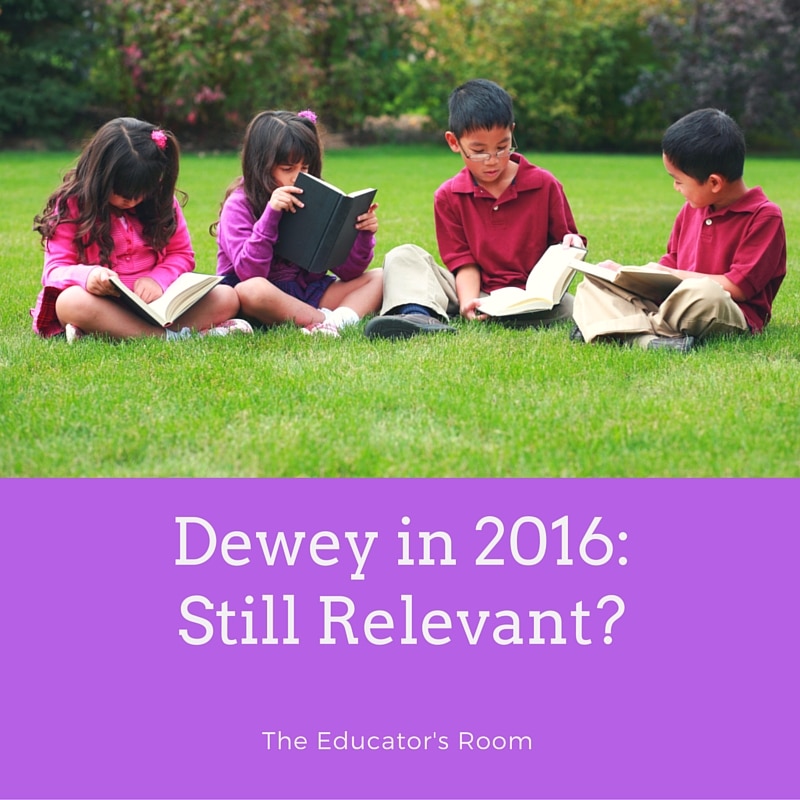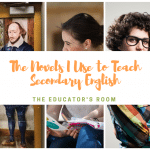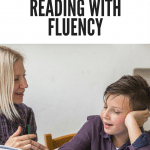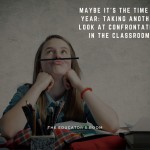When I was pursuing my master’s in education, I spent a great deal of time examining the philosophies of various critical theorists. Vygotsky, Piaget, Freire, Montessori, Gardner, Pestalozzi and a whole host of other big educational names became part of my courses of study. Knowing these philosophers and their perspectives even helped me pass Florida’s Educational Leadership Exam (FELE). One, however, had theories and philosophies that really stuck with me-John Dewey.
Considered the father of progressive education, Dewey’s philosophy of experiential education has taken quite a beating over the last several years. Some pedagogical experts say that it was good for an industrial-era America, but not for our innovation-driven present. Others discount it on the grounds of technology – in an age of interactive whiteboards and classroom apps, what could a bygone time’s thoughts offer today’s educator?”
[fusion_builder_container hundred_percent=”yes” overflow=”visible”][fusion_builder_row][fusion_builder_column type=”1_1″ background_position=”left top” background_color=”” border_size=”” border_color=”” border_style=”solid” spacing=”yes” background_image=”” background_repeat=”no-repeat” padding=”” margin_top=”0px” margin_bottom=”0px” class=”” id=”” animation_type=”” animation_speed=”0.3″ animation_direction=”left” hide_on_mobile=”no” center_content=”no” min_height=”none”][bctt tweet=”what could a bygone time’s thoughts offer today’s educator?” username=”@theeducatorsroom”]
To fully appreciate what Dewey can offer us today, we have to dig deep into his philosophy (I know – sounds boring, but stay with me). Dewey believed that two critical components comprised experiential education: interaction and continuity. Today, we are more accustomed to terms like “engagement” and “long-term planning,” but a change in our practical vocabulary doesn’t necessarily mean a change in good teaching.
Educators have always needed (and continue to need) strategies that keep students focused and on-task, whether that’s with one another, with the teacher, or with material. Interaction ensures that this is happening. Dewey’s premise was simple: For students to learn, they must be doing something with the knowledge they’re receiving. Sounds easy, yes? To ensure kids retain information, have them use the learning that you’re providing. Today we’d call that the “application” component in our lesson plans. Some experts have posited that Dewey’s definition of interaction was limited strictly to hands-on, tactile-kinesthetic experiences. And while certainly those kinds of experiences have been successful (see Foxfire, John Campbell Folk School, etc.), interaction can cover a multitude of different learning strategies.
We owe the notion of “I-do, We-do, You-do” type engagement to Dewey, in some ways. His big idea of interaction as part of experiential education helped revolutionize otherwise stale, rote learning in the American classroom and beyond. Moving from blackboards and hard wooden desks into the world beyond the classroom really caught on after Dewey’s writings, although others had tried it before.
One of the most memorable lessons in my teaching career occurred in a tree (yes, really). My class of 10 students with various learning disabilities was reading and responding to John Knowles’ classic novel, A Separate Peace. For those who haven’t read it, one of the most pivotal scenes in the book occurs high in a large tree near a river. For our reading of that portion of the text, my class and I travelled to a low-limbed and wide-spreading tree near the middle of my previous school’s campus.
Here’s what I found: These students, diagnosed with dyslexia, ADD, ADHD, dysgraphia, and Asperger’s Autism, recalled that chapter better than any other we read together. Combining experience and an innovative setting with literature resulted in better retention and laser-focused engagement. Certainly this one episode isn’t a cure-all for every literature class with distracted and sometimes difficult students, but in this one instance, its outcomes were remarkable. I think Dewey would have been proud.
Then there’s continuity – an idea that maintains relevance throughout educational eras. When we think about issues like scope and sequence, we’re really investigating how continuity will affect students’ brains. Continuity demands that we be intentional about the presentation of our subject. Rather than simply allowing instruction to “fall where it may,” continuity requires that we present our information in a way that will foster and scaffold student development.
Research indicates that a student must use a word in context 40 times before it becomes part of his or her working vocabulary. Continuity in instruction can help this number become a reality. Likewise, building lessons on prior knowledge leverages continuity by having students use what they’ve already mastered. Dewey was keen on the idea of using a student’s background to inform instruction; in fact, that’s one defense for continuity. It helps to balance discipline and freedom.
As 2016 pushes past its midpoint, we are flooded with critical theories that seem “latest” and “greatest,” and some may even live up to their hype. But prevailing upon the bedrock of time-tested and teacher-proven methodologies never steers us wrong. John Dewey and his philosophies weren’t perfect; there remain loopholes and logical fallacies that deserve consideration (that’s fodder for another article). But providing students with meaningful experiential education using interaction and continuity will always yield positive results, even if those results are intangible. In that regard, Dewey was not only right, he was timeless.
[bctt tweet=”Education using interaction and continuity will always yield positive results.” username=”@theeducatorsroom”]
 [/fusion_builder_column][/fusion_builder_row][/fusion_builder_container]
[/fusion_builder_column][/fusion_builder_row][/fusion_builder_container]






